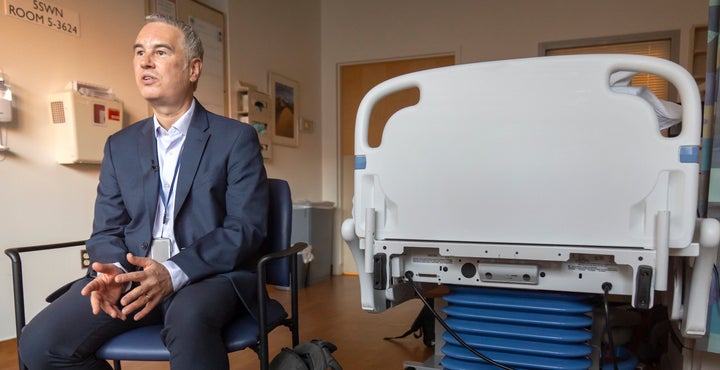🔴 Website 👉 https://u-s-news.com/
Telegram 👉 https://t.me/usnewscom_channel
The National Institutes of Health’s top expert on ultraprocessed foods resigned Wednesday, saying in a public letter that he was doing so after NIH leaders censored the findings of a study that didn’t support their own preconceived narratives.
“After 21 years at my dream job, I’m very sad to announce my early retirement from the National Institutes of Health,” wrote Dr. Kevin Hall in a letter published on social media.
“Unfortunately, recent events have made me question whether NIH continues to be a place where I can freely conduct unbiased science.”
Hall said he was initially optimistic that new leadership at the agency, now under the control of Health Secretary Robert Kennedy Jr., would prioritize research into ultraprocessed foods and how their consumption impacts our health.
Kennedy has long maligned ultraprocessed foods, blaming them for a wide variety of physical and mental health issues, from diabetes to various cancers to autoimmune disorders.
But when a new study, the largest of its kind, suggested ultraprocessed foods aren’t as addictive as addictive drugs ― or at least aren’t addictive in the same way ― Hall says top aides for Kennedy stopped him from publicly discussing it.
Hall co-authored the study, which was published March 4 in Cell Metabolism, a science journal.
He told CBS he was blocked from presenting the research at a conference and was instructed to either accept official edits on a manuscript or to remove himself as a co-author.
AP Photo/Mark Schiefelbein
Hall also said that the Department of Health and Human Services barred him from participating in an interview with The New York Times to discuss the findings. He said that when he offered written answers to the reporter’s questions instead, his responses were edited and submitted without his approval.
HHS denied that claim in an emailed statement and said the agency remains “committed to promoting gold-standard research and advancing public health priorities.”
“It’s disappointing that this individual is fabricating false claims,” an HHS spokesperson told HuffPost. “NIH scientists have, and will, continue to conduct interviews regarding their research through written responses or other means.”
Hall responded by writing a letter to Kennedy and incoming NIH Director Dr. Jay Bhattacharya about the alleged censorship, noting at the same time that the Trump administration’s unanticipated funding freezes prevented researchers from obtaining basic research supplies or even purchasing food for study participants.
The letter went unanswered, leading to Hall’s resignation on Wednesday.
“Without any reassurance there wouldn’t be continued censorship or meddling in our research, I felt compelled to accept early retirement to preserve health insurance for my family,” he said, expressing hope to one day return to government service.
“The NIH has been a wonderful place because it allows scientists to take risks, form unique collaborations, and do studies difficult to conduct elsewhere. I’m proud of what we’ve accomplished and I’m fortunate to have had such wonderful colleagues and scientific collaborators.”

